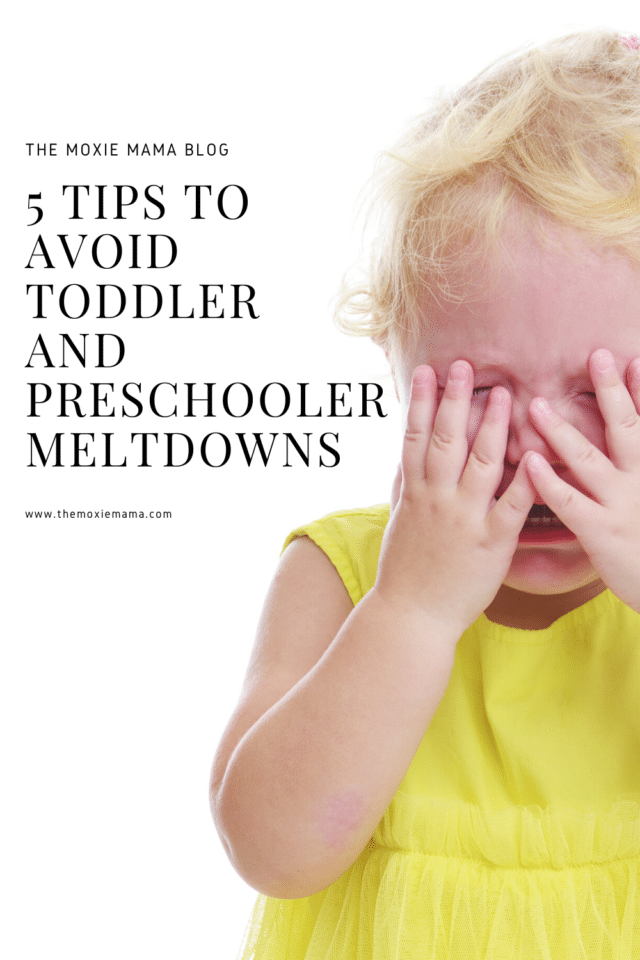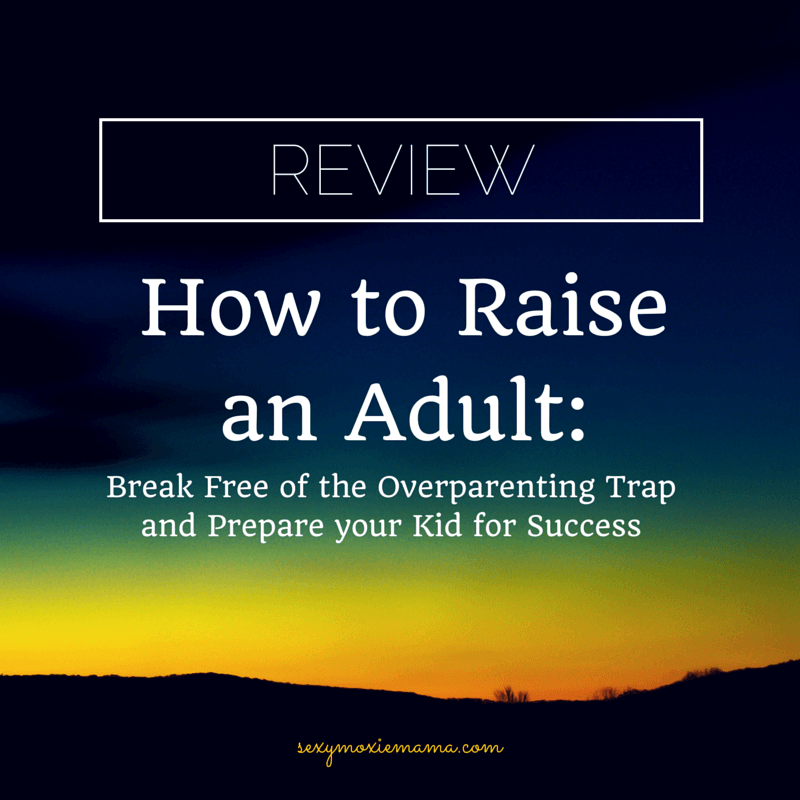
Yesterday, after a fun yet long day of hiking and bike riding, my preschooler lost it. I mean really lost it. You know what I mean, one minute she’s calm and quiet and the next she’s screaming and crying at the top of her lungs for 45 minutes straight–a full-fledged preschooler temper tantrum. My nerves were fried.
It can be challenging to witness your child transform from a peaceful, cheerful toddler or preschooler into an ear-piercing, weeping, tantrum-throwing ogre! Not to mention, keep your sanity. Once a toddler or preschooler temper tantrum starts, it can be extremely difficult to settle down your child. Often it’s simpler to avoid toddler temper tantrums than to stop one already in progress. Here are five easy tips to help avoid preschooler meltdowns.
Remember the Essentials. A sleepy or hungry toddler or preschooler is very likely to have mini meltdowns or a genuine temper tantrums. Make a big effort to ensure your child doesn’t becomes overly hungry or tired. You’ll see a reduction of tantrums your well-fed, well-rested child has.
Keep to a Routine. From new places to new people, the world can be very overwhelming for some toddlers and preschoolers. Offering your toddler or preschooler a daily routine can bring a sense of consistency and stability. Children often feel most comfortable with a familiar routine. Even portions of the routine your toddler or preschooler doesn’t favor, such as naptime, cleanup time, bath time, etc. are better tolerated when your child understands that they are approaching.
Give Expectations. Without proper guidance, your toddler or preschooler doesn’t know what socially acceptable behaviors is. Assist your child by creating expectations before they enter an unfamiliar place. For example, if you go to a friend or relative’s home, let your child know there will be no running, screaming, or climbing on furniture. Try repeating the expectations multiple times with your child before entering the situation to give your her a better understanding of what is acceptable behavior.
Pay Attention. Often, children feel the need to act out when they don’t get enough attention. Allow your child know they are an importance in your life. Spend quality time with your child playing, reading, and eating together. Children are often able to adjust to their ever-changing world better when they feel that they have someone who is on their side.
Offer Praise. Positive reinforcement can work miracles for a child prone to temper tantrums! When trying to prevent toddler or preschooler temper tantrums, look for and praise every little stride your child makes in the right direction. Make your statements positive and exciting. Toddlers and preschoolers genuinely want to make their parents happy, so take the time to praise them and tell them when they do a good job!



These are all great tips! So glad my son is old enough now to know better!
Oh the toddler meltdown, the not so glorious time in our lives. UGG, I remember it vividly. These are some great tips to help avoid those meltdowns!
Cindy (Vegetarian Mamma) recently posted…How to Start a Food Blog – Picking a Domain Name and Host
Praising a child is always a positive and you will be rewarded with a big smile! Temper Tantrums happen and the above sound like good ways to hopefully avoid some of them.
Michele recently posted…Book Review-Money Land (A James Pruitt Mystery #2)-R.S. Guthrie
Distractions! Whenever we saw one coming on, we always tried to distract their attention to something else.
Scott recently posted…When Bloggers Converge, They Bash
Kids tend to get temperamental on long trips. It takes a lot of patience and nerves of steel to deal with it. You have some great tips that really should help parents with a kid throwing a temper tantrum.
Routine is what sets my kids off. If we get out of routine then they can slip into meltdown mode. I also have to prepare them for what is coming.
Life as a Convert recently posted…Reward Yourself With A Cool McDonald’s Treat – Printable Reward Chart
Many people don’t realize how important it is to maintain a routine when you have children that age. It’s important to provide them with structure and a sense of security.
Toughcookiemommy recently posted…Straight From The Oven-Lemon Almond Poppy Seed Bread Recipe
My oldest son had a meltdown when he was younger. We were in the middle of a store and he threw himself down on the ground and just started screaming. I decided to do the same and he stopped and looked at me. I asked him if I looked silly and he said yes and I explained that he too looked silly. That was the only tantrum he ever threw!
That is great. Unfortunately we were 1.5 hours in on a 2 hour trip when he lost it. We were all tired and ready to get out of the car. I never knew my son could scream that loud. lol
You gave some really excellent advice here. I like the positive reinforcement for good behavior rather than the negative attention during the tantrum. I would think that’s a great way to redirect!
Liz Mays recently posted…STEM is for Girls, Too
These are all great tips! my son would have tantrums when we go to the mall and he buy something but i’m not agree to him . he’s crying and 35 minutes left he didn’t stop so i decided to buy what he wants then he stop cring
The last one is very important. Showing and telling them that they did a great job greatly helps.
Ron recently posted…How To Get Into Wedding Planning Industry
We have a 2 year old and yes, I can relate. Thanks for the tips!
I’ve been working with toddles and preschoolers for 16 years and these are spot on! Thanks for sharing and I hope it helps someone prevent a meltdown.
Kira T recently posted…Family Matters
These are wonderful tips. Temper tantrums can’t be avoided, but I’m glad it’s been easy so far, with my twin granddaughters.
This is the story of my life right now! He is almost three and we are in some trying times.
krystal recently posted…Bacon + Feta Omelet
These are great tips. We are in the tantrum phase right now and it is very nerve wreaking. I definitely needed this post.